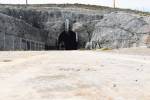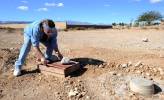Questions, doubts adding up about U.S. attorney’s office
For months some local observers of the federal justice system have wondered what's going on inside the U.S. attorney's office.
Now people are starting to ask questions.
Are the veteran prosecutors in a slump? Are they simply victimized by complex and problematic cases? Or, as some have suggested, is there something more troubling going on with U.S. Attorney Daniel Bogden's second tour of duty?
From the lackluster results of the so-called "Medical Mafia" investigation and the embarrassingly protracted Crazy Horse Too case, to the odd recent decision in the Puffinburger "kidnapping" trial and the lack of charges to date in the voluminous local homeowners association investigation, the questions are beginning to stack up.
Trouble is, Department of Justice rules preclude Bogden from addressing all the questions. I called Bogden on Friday to get what answers I could. He offered a few reasoned responses and mounted a strong defense of his office, but admitted, "We have our rules, and we abide by those rules."
That won't stop the questions.
The medical malpractice investigation was touted as a case that would tear the lid off the sordid and felonious conspiracy between local doctors and personal injury lawyers to burn insurance companies in malpractice cases. Enough names were floated to fill half the Yellow Pages.
Prosecutorial results so far have been substantially less than advertised, with a few minor convictions and as many questionable deals cut to save local doctors' careers. When they hear my cynicism expressed, downtown federal sources whisper a line straight out of Yogi Berra's autobiography: It ain't over 'til it's over.
Or should they admit, like lowly Chicago Cubs fans, we'll have to wait until next year?
The tangled affair of Rick Rizzolo, the ill-fated sale of his notorious Crazy Horse Too topless club, and the lack of compensation received by crippled beating victim Kirk Henry has filled reams of newsprint. Henry family co-counsel Stan Hunterton, himself a former federal prosecutor, expressed his frustration publicly over the time it is taking to get justice for his clients.
"We were finally able to provoke the U.S. government into moving to revoke Rizzolo's supervised release," Hunterton said last week following an appearance in U.S. District Judge Philip Pro's courtroom. There is a March 29 parole revocation hearing.
"Maybe we've now gotten to the point where the phrase, 'You can run, but you can't hide,' is starting to work. The federal government hasn't done anything for two years since this guy was released. Now they finally seem to be in gear and engaged in the process. Of course, they have a lot more resources than Don Campbell and I do. It would be nice to see them get to the bottom of some of these things."
Hunterton and former Strike Force prosecutor Campbell, who represent Kirk and Amy Henry in a civil fraud case against Rizzolo, make little secret of their frustration with the federal prosecutor's office and its seeming lack of energy in forcing the sale of the topless club and pursuing Rizzolo for violating his parole, hiding millions in assets, and misleading the court.
A recession economy and the spider's web of interest in the Crazy Horse Too might have had an impact on its failure to sell, but Bogden's office was responsible for getting it done.
Again, Bogden staunchly defended the efforts of his office and lauded the work ethic of forfeiture specialist Daniel Hollingsworth, but acknowledged, "Did we work very, very hard to try to find a buyer and get the place sold? Yes, we did. Did it work out the way we wanted to? No, it didn't."
As for the alleged drug-related kidnapping of Cole Puffinburger, the Review-Journal has reported that jurors looked at the purported evidence and smelled a rat almost immediately. Without the efforts of the IRS Criminal Investigation office, which nailed down the money laundering charges, the case could have fallen to pieces.
Sentencing in the case is set for May.
Finally, there's the large-scale construction-defect fraud investigation of local homeowners associations. With evidence surfacing of corrupt cops, crooked attorneys and contractors, and even some old-school hoodlums on the periphery, the case would appear to have plenty of jury appeal. It does not as yet have an indictment.
Bogden was recused from the HOA investigation because he owns a condominium in one of the communities under investigation. But that's not the reason the rest of the office was pitched from the prosecution and replaced by Justice Department attorneys from Washington.
Reliable sources close to the investigation say there also were confidentiality concerns inside the U.S. attorney's office. How much that will slow the investigation and hamstring the prosecution remains to be seen.
One of the key players in the HOA investigation, former Metro Lt. Ben Kim, has yet to be indicted despite a lengthy investigation into a suspicious bank loan Kim and business partners took out for the Courthouse Café.
Critics aside, Bogden has a different view of his team.
"It was a banner year in 2010," he said, explaining prosecutions were up 39 percent and the office collected $89 million in asset forfeitures. "Those are achievements that certainly were substantial for our office."
Until some major cases are cleared, there will remain more questions than answers coming from the U.S. attorney's office.
John L. Smith's column appears Sunday, Tuesday, Wednesday and Friday. E-mail him at Smith@reviewjournal.com or call (702) 383-0295. He also blogs at lvrj.com/blogs/smith.























